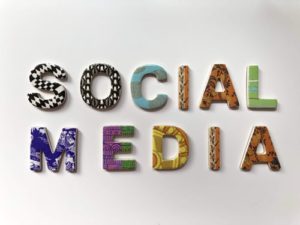Ostrich approach
ON Friday, Pakistan blocked all popular social media and internet messaging applications including Facebook, YouTube, Twitter, TikTok, and WhatsApp for four hours across the country to “maintain public order” in anticipation of protests by the recently banned TLP. Such blocking undermines fundamental rights, impacts an already fragile economy, defies logic of security, and punishes citizens for the state’s mistakes.
Whereas in the past the state has used measures such as network shutdowns in particular areas of protests and blocking of particular social media applications for as long as around four years in the case of YouTube, this is the first time that all popular social media applications including WhatsApp were blocked simultaneously for all citizens.
This should be a cause of alarm and concern. Such a disproportionate measure in the name of maintaining ‘public order’ is a gross violation of the basic rights of Pakistani citizens, as the Constitution protects the right to freedom of speech, right to information, right to education, right to livelihood and freedom of association. Whereas constitutional rights are “subject to law”, even the draconian Section 37 of the Prevention of Electronic Crimes Act, 2016, stipulates blocking or removal of unlawful online content, but nowhere does it allow a pre-emptive blanket blocking of all social media applications and websites. So the question is, under what law was the blocking of social media applications and websites ordered by the interior ministry? The notification cited none, and it should have.
This new turn in the nature of state censorship is also bad news for Pakistan’s digital economy, which is a supposed priority for this government with its Digital Pakistan plans. A country that arbitrarily blocks entire websites and applications that are critical to business activity in today’s digital age is an unattractive destination for those wishing to do business or investing here. No business wants such uncertainty.
The logic of blocking social media to contain protests is flawed.
These bans also gravely impact the thousands of small businesses that rely on social media to function, as well as students who are studying online. It is important to understand that messaging services and social media applications have increasingly become the primary mode of communication, and their usage complements other learning tools. During the Covid-19 pandemic, this dependency has increased, and is likely to remain.
The logic of blocking social media to contain protests is flawed, especially for groups with strong networks on the ground. There are several ways of circumventing such censorship, despite a VPN ban that is ineffective even in the most authoritarian countries, as was evident from the trending topics while the blocking was in place. It only ends up disturbing millions without achieving the stated goal.
Further, blocking social media makes citizens suffer for the state’s mistakes and failures. A group that was mobilised on the basis of passionate religious beliefs by a charismatic leader who enjoyed state protection, whose protesters were given cash by state officials to end a protest, and with whom the government signed an agreement acceding to its demands to quell a violent protest, will not be easy to dismantle by burying our heads.
Instead, the state needs to permanently ban the practice of setting up, supporting and nurturing individuals and organisations that exploit religious sentiments for short- or long-term political gain; have consistent zero tolerance for violence and militancy by non-state actors; and ensure the rule of law is always upheld. The state also needs to bear in mind the consequences of a radicalised political party with representatives in assemblies that is all of a sudden declared a terrorist group — it is not only the members but also the vote bank and supporters that are bound to revolt. We have suffered long enough for what panned out at Lal Masjid.
The likelihood of this is no less mitigated by several videos of custodial torture by police of protesters. Granted that several police personnel were beaten and tortured by protesters, but no crime is grave enough for suspects’ violation of dignity through torture. This only perpetuates a cycle of violence and vengeance that our society cannot afford anymore. The constitutional right to dignity, fair trial, due process and legal representation must be upheld, and families kept abreast of the whereabouts of detainees.
A video statement of the interior minister on Friday in which he apologised for blocking social media and said it will not happen again while admitting that there were no protests held on Friday due to the possibility of which social media had been blocked, cannot be trusted.
Could this instead be a test of social media blocking, and harbinger of what is to come? Such measures must be resisted at all levels.
Source: Dawn

